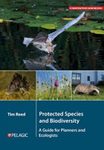![Ecological Risk Management Ecological Risk Management]()
Click to have a closer look
About this book
Customer reviews
Biography
Related titles
About this book
This book introduces the theory and practice of ecological risk management. Using recent and live case studies in Japan, the book explains the use of basic mathematical techniques in extinction risk, adaptive population management, avian collision risk in wind farms, potential biological removal for marine mammals, and ecological risk assessment of heavy metals. The focus of Ecological Risk Management is on case studies of nature conservation in Japan, including internationally renowned topics of Japanese fisheries, Shiretoko World Heritage, Fukushima Daiichi Nuclear Power Plant accident. It also covers the adaptive risk management of the new coronavirus disease.
The book comprises four parts covering ecotoxicology, fisheries, wildlife management and conservation, and ecosystem-based management. It differs from other books in having its primary interest in human impacts on animals, plants, and ecosystems, while existing works in this area concentrate on the fate of toxic substances in the environments and their effects on humans. This book is unique in that it indicates various environmental issues that the theoretical ecology is potentially applicable to without concentrating on any particular subject such as ecotoxicology or conservation biology.
Primary readers are undergraduate/graduate students, staff of environmental consultant companies and environmental NPOs, and journalists. Readers will find Ecological Risk Management useful for its abundant information on case studies of ecological risk management and consensus building in Japan.
Customer Reviews
Biography
Hiroyuki Matsuda is an expert in mathematical ecology, fisheries management, and environmental risk management. He developed an extinction risk assessment method used in Japanese vascular plant Red List, proposed Japan's first adaptive wildlife management for Sika Deer Management Plan of Hokkaido Prefecture, and proposed an idea to expand the seasonal fishing-ban area in Shiretoko World Heritage site during a nomination process. He was a leader of Global COE Program "Global Eco-Risk Management from Asian Viewpoints", past President of the Ecological Society of Japan, past President of the East Asian Federation of Ecological Societies, former President of the Society for Population Ecology, past Chair of the Fisheries Policy Committee of the Japanese Society of Fisheries Sciences, Director of the Japan Society of Ocean Policy. He is the first Japanese Pew Fellow for Marine Conservation since 2007, co-representative of Yokohama Urban Design Center of the Sea, chairman of Japanese Coordinating Committee for MAB (Man and the Biosphere), and a Board Member of Earthwatch Japan.










































